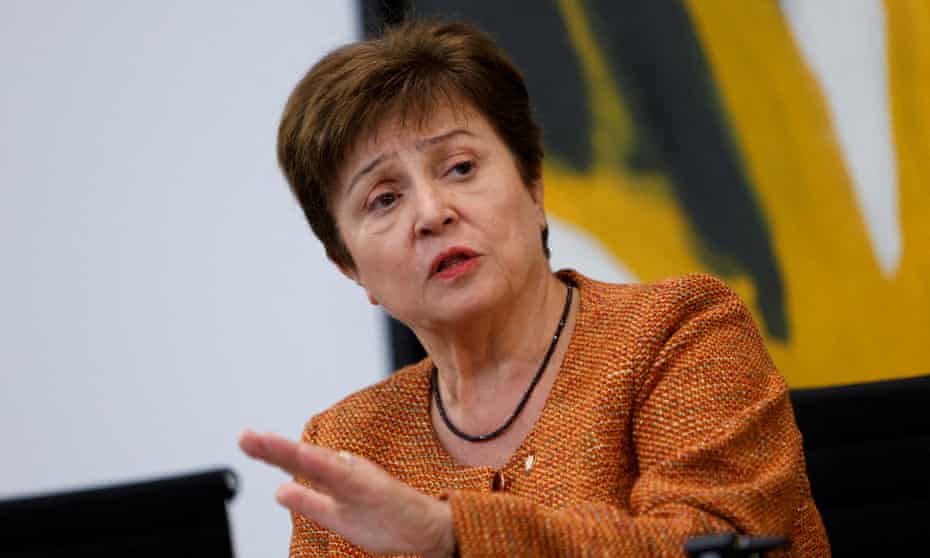The chief of the International Monetary Fund has warned that the global economy is on track to experience its lowest expansion since 1990 as a result of higher interest rates set by the top central banks in the world, Entrepreneurng report.
The managing director of the IMF, Kristalina Georgieva, predicted that the dramatic downturn in the global economy that occurred in 2018 as a result of the CoVid epidemic and the Russian invasion of Ukraine would continue in 2023 and could extend for the following five years.
She predicted that global growth will stay around 3% for the next five years, which would be the lowest medium-term growth estimate since 1990, in a curtain-raiser address before the fund’s spring meetings in Washington, DC, the following week.
This makes it much more difficult to eradicate poverty, mend the economic wounds left by the Covid crisis, and give everyone access to new and improved prospects, according to Georgieva.
She gave a pessimistic view, saying that economic growth was declining particularly in industrialized economies as the world struggled with the greatest inflation shock in decades.
Even though there was some momentum coming from developing countries like China and India, low-income nations were also feeling the effects of rising borrowing rates and a decline in the market for their goods.
Georgieva stated that the global growth in 2022 had decreased by over 50% since the initial recovery from the Covid epidemic in 2021, falling from 6.1% to 3.4%, ahead of the IMF presenting updated economic predictions next week.
She predicted that due to high inflation, rising borrowing costs, and escalating geopolitical tensions, global GDP will fall below 3% in 2023 and continue to be sluggish for years to come.
She predicted that up to 90% of advanced economies will see a fall in GDP this year as rising interest rates hurt the US and the eurozone’s economic activity.
Georgieva stated there were still more issues to solve, comparing the struggle to “climbing one ‘big hill’ after another.” She listed the following as the first hurdles: “Covid, then Russia’s invasion of Ukraine, inflation, and a cost of living crisis that impacted everyone.
“Thus far, we have shown ourselves to be tough climbers. The ropes holding us together might be weaker now than they were a few years ago, but the road ahead – and particularly the road back to healthy development – remains rocky and hazy.”
Georgieva emphasized the effect of increasing central bank interest rates on global economic activity, but she also emphasized the need to “keep the course in the fight against inflation.”
Without both price and financial stability, sustained growth is impossible. And today, both require politicians’ attention,” she said.
In conclusion, Georgieva reiterated these dangers while stating that, even though the global banking sector had “gone a long way” since the 2008 financial crisis, “concerns persist about vulnerabilities that may be hidden, not just at banks but also non-banks.
Source: The Guardian


